Interest Free Financing Up To 36 Months
WE DO NOT ONLY PUMP YOUR TANK - WE CLEAN IT!
Multiple Financing Options Are Available Up To 36 Months
Interest Free Financing Up To 36 Months
WE DO NOT ONLY PUMP YOUR TANK - WE CLEAN IT!
Multiple Financing Options Are Available Up To 36 Months
A conventional septic system is a wastewater treatment system that is frequently employed in regions that lack centralized sewer systems. These systems are essential for treating and disposing of household wastewater in an environmentally friendly manner.
In this blog post, our professionals from Septic Blue of Raleigh will explore the components and functions of conventional septic systems, their maintenance requirements, and the importance of professional septic services.
A conventional septic system typically consists of three main components: the septic tank, the drainfield, and the soil. The septic tank is a watertight container that is typically constructed from concrete, fiberglass, or plastic. It is responsible for the storage and treatment of wastewater from the residence. Solids descend to the bottom, forming sludge, while oils and grease float to the top, forming scum, as the wastewater enters the tank. The middle layer's refined liquid is discharged into the drainfield.
The drainfield, which is also referred to as a leach field, is composed of a network of perforated pipes that are submerged in trenches that are filled with gravel. This region enables the treated effluent to disperse into the soil, where it is further purified by natural filtration processes before it reaches the groundwater. The soil functions as a natural filter, removing harmful bacteria, viruses, and nutrients from the effluent.
The process begins when wastewater from household activities such as flushing toilets, washing dishes, and doing laundry flows into the septic tank. The solids descend to the bottom of the tank, while lighter substances such as oils and grease float to the top. Bacteria in the tank begin to break down the organic matter in the wastewater.
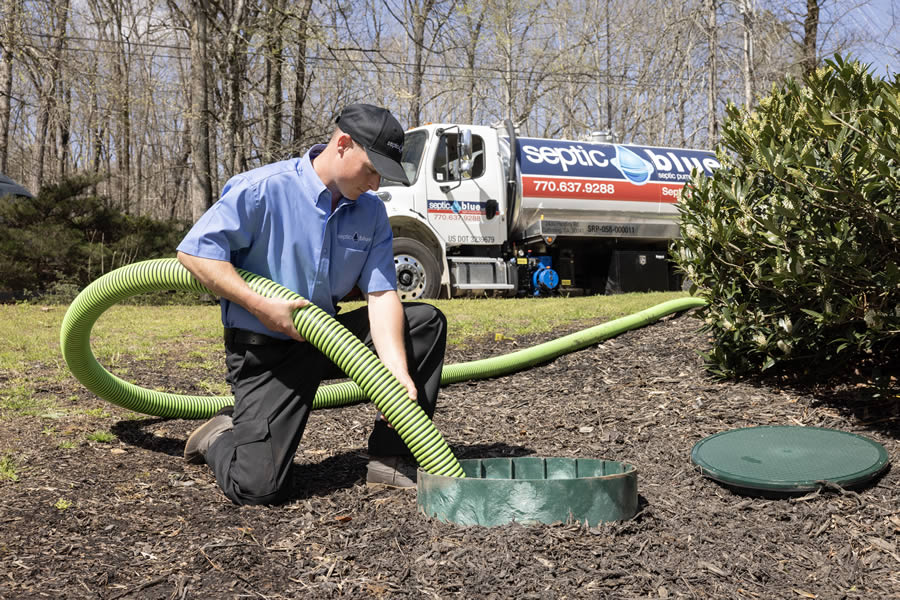
Septic tank pumping in Raleigh has never been so affordable and accessible thanks to the professionals at Septic Blue. We are…
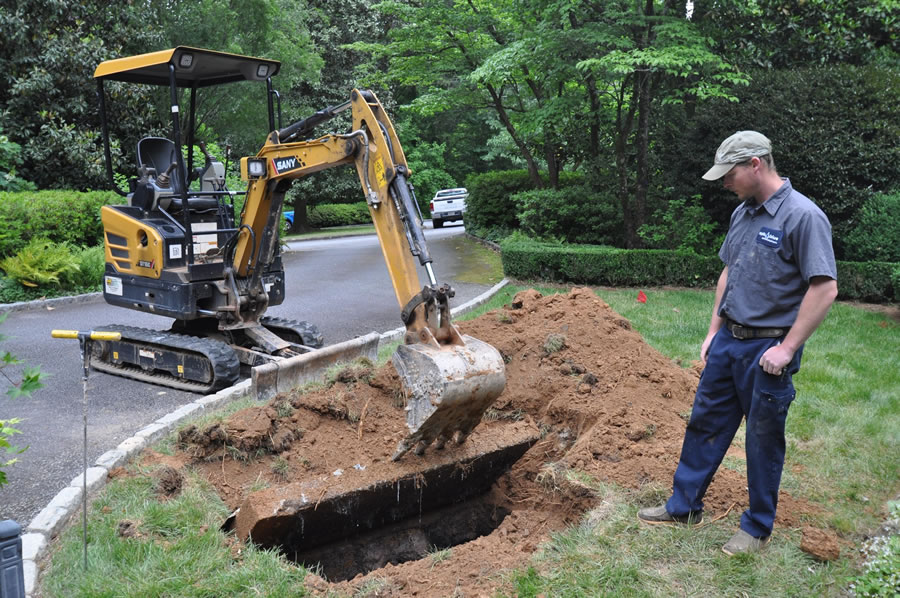
One quarter of Americans rely on septic tanks to process household waste. Most Septic Blue locations have septic tank experts who…
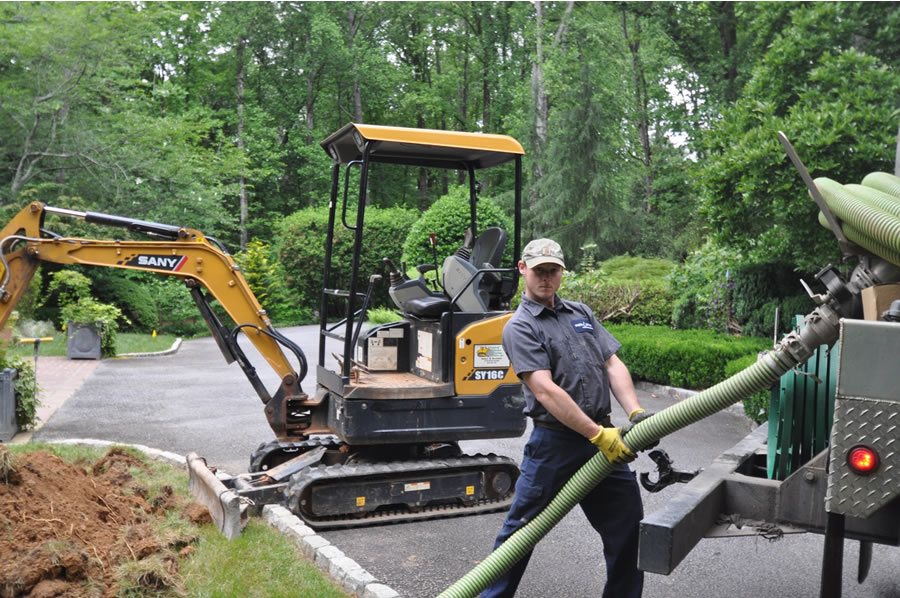
Call Septic Blue today for a second opinion. If you choose to go with Septic Blue, you'll receive $250 off your…
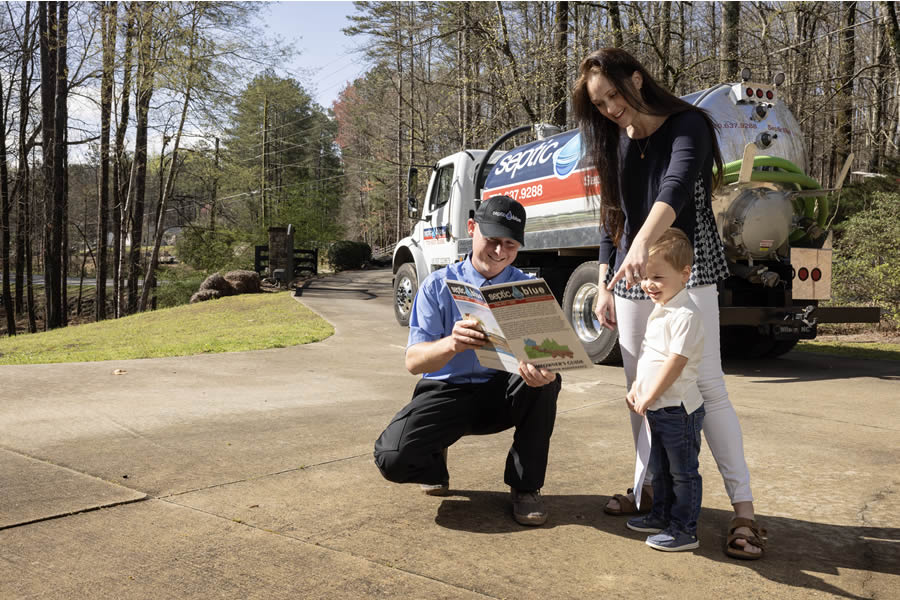
If you are a homeowner or resident in Raleigh that is among the 20 percent of households in the U.S. with…
Professional Saptic Plumbing solutions for every need. Contact Us Today!
The liquid effluent then flows from the septic tank into the drainfield. As it percolates through the soil, the natural filtration process removes contaminants, making the water safe to re-enter the groundwater system. Conventional septic systems that are properly designed and maintained are capable of effectively treating and disposing of household effluent, thereby safeguarding the environment and public health.
The efficiency and longevity of a conventional septic system depends on the regular pumping of the septic tank. The sediment and scum layers in the septic tank accumulate over time, which can result in a reduction in the tank's capacity and a potential system failure. The solids may overflow into the drainfield, resulting in obstructions and damage that may necessitate extensive septic tank repair if they are not regularly removed.
Septic systems may develop complications that necessitate professional septic repair, despite consistent maintenance. Typical indicators of septic system issues include standing water near the drainfield, unpleasant odors, gurgling noises in plumbing, and slow drains. Contacting a septic company promptly is essential in order to diagnose and resolve the issue if you observe any of these signs.
The selection of the appropriate septic tank installation is essential when constructing a new home or replacing an outdated septic system. Based on factors such as soil type, property size, and local regulations, a professional company can assist you in identifying the optimal system for your property. The efficient operation of your system and compliance with environmental standards are guaranteed by the proper installation of your septic tank.
Are you in need of septic tank cleaning? Luckily, we at Septic Blue of Raleigh have dedicated workers ready at your service. Contact our representatives for more questions.
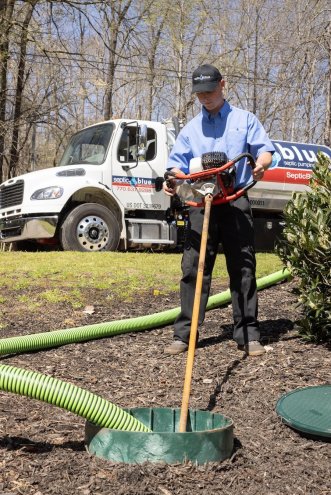
Your septic system plays a critical role in managing wastewater safely and efficiently, protecting both your home and the surrounding environment.…
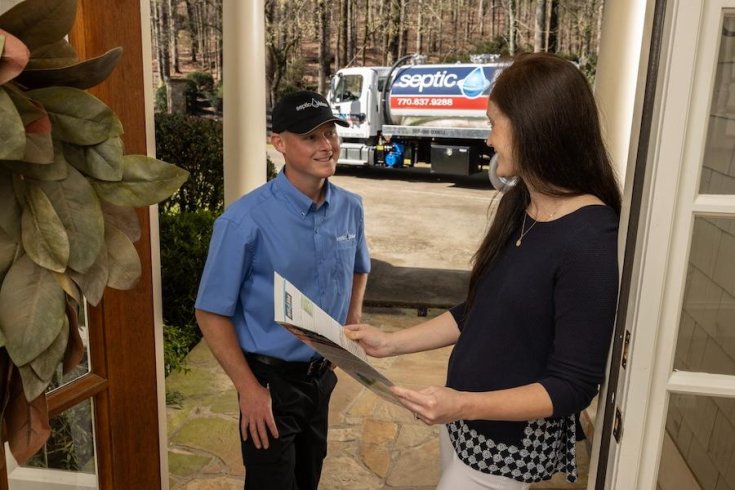
Hiring a septic company in Raleigh, NC involves more than comparing prices or scheduling the earliest appointment. Septic pumping, cleaning,…
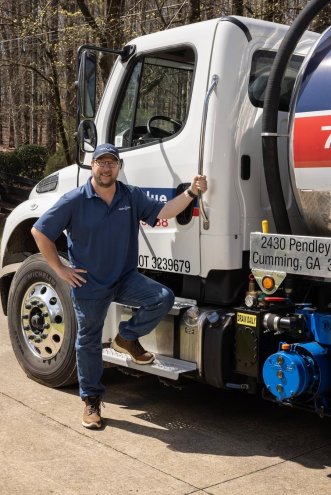
A septic system is designed to move wastewater efficiently from your home into a tank and then into the drain field.…
.webp)
Even if it often fades into the background of daily life, a septic system plays a critical role in keeping your…